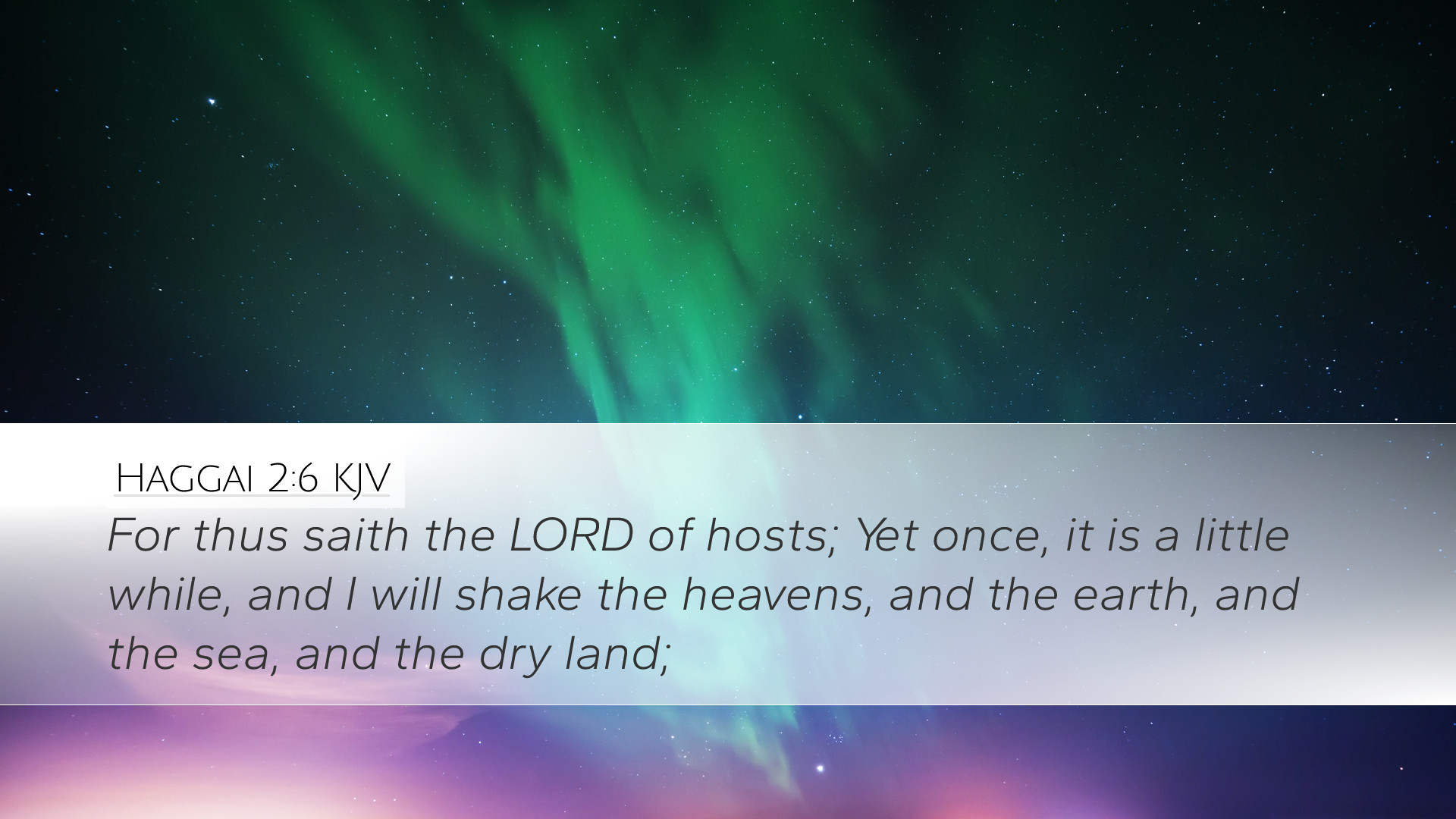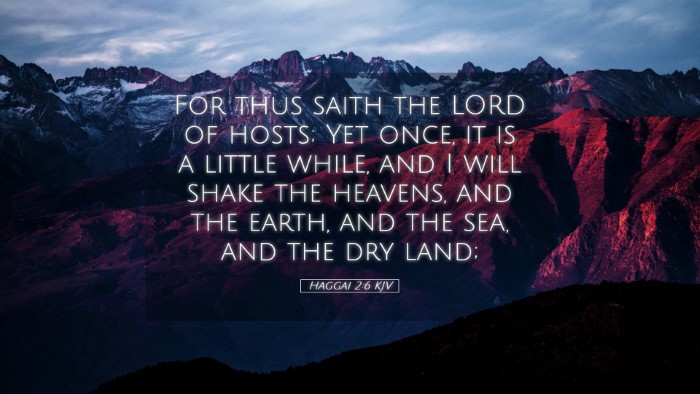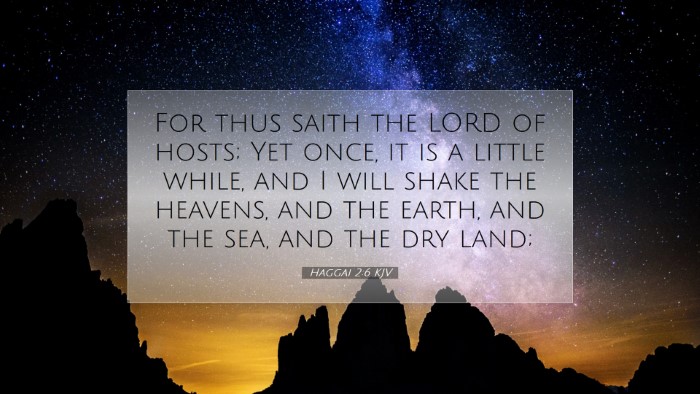Old Testament
Genesis Exodus Leviticus Numbers Deuteronomy Joshua Judges Ruth 1 Samuel 2 Samuel 1 Kings 2 Kings 1 Chronicles 2 Chronicles Ezra Nehemiah Esther Job Psalms Proverbs Ecclesiastes Song of Solomon Isaiah Jeremiah Lamentations Ezekiel Daniel Hosea Joel Amos Obadiah Jonah Micah Nahum Habakkuk Zephaniah Haggai Zechariah MalachiHaggai 2:6
Haggai 2:6 KJV
For thus saith the LORD of hosts; Yet once, it is a little while, and I will shake the heavens, and the earth, and the sea, and the dry land;
Haggai 2:6 Bible Commentary
Commentary on Haggai 2:6
Bible Verse: "For thus says the Lord of hosts: 'Once more, in a little while, I will shake the heavens and the earth, the sea and the dry land;'" (Haggai 2:6, ESV)
Introduction
The Book of Haggai addresses the post-exilic community of Israel, urging them to rebuild the temple and restore their covenantal relationship with God. In Haggai 2:6, we find a profound declaration concerning divine sovereignty and the impending transformative events in the cosmos. This commentary integrates insights from public domain commentaries to provide a rich understanding of the verse's meaning.
Contextual Background
Haggai prophesies during a time of great uncertainty for the Israelites, who had returned from Babylonian exile. The temple's reconstruction had stalled, and the people were disheartened. Haggai’s ministry is primarily focused on motivating the people to action. This verse appears in a section that emphasizes God's presence and His power over creation.
The Divine Declaration
According to Matthew Henry, the phrase "For thus says the Lord of hosts" establishes the authority behind the promise. God identifies Himself as "the Lord of hosts," indicating His supreme authority over all heavenly and earthly armies. This title reassures the people that His commitment to their cause is backed by infinite power.
Albert Barnes elaborates on the phrase "Once more, in a little while." He suggests that this indicates a short period leading up to a significant upheaval and change. God's timing is paramount, and He assures the Israelites that His intervention is both imminent and decisive.
The Cosmic Shake
The imagery of shaking "heavens and the earth, the sea and the dry land" is interpreted by Adam Clarke as a metaphor for the upheaval that accompanies significant divine actions. This cosmic shaking implies not only physical disturbance but also spiritual and political shifts. Clarke further states that such shaking denotes God's intention to renew the covenant through powerful acts and deliverance.
Theological Implications
- Covenantal Renewal: This verse reinforces the theme of God’s unwavering commitment to His promises. The shaking signifies God's move to restore His people, illustrating that God often uses monumental events to fulfill His purposes.
- God's Sovereignty: The text emphasizes God's absolute control over all creation, which comforts believers by affirming that no earthly power can thwart His plans.
- Encouragement amidst Despair: For a community struggling with discouragement, this verse provides hope. The promise of divine intervention encourages them to remain steadfast in their task of rebuilding.
Practical Applications
From this passage, we derive several practical lessons for today’s believers:
- Faith in Divine Timing: Believers are reminded to trust in God’s timing, especially during periods of waiting and uncertainty.
- Active Participation in God’s Work: Just as the Israelites were called to rebuild the temple, modern believers should actively participate in God's redemptive work in their communities.
- Hope in God’s Power: In times of political and societal upheaval, Christians can take comfort in the knowledge that God is sovereign and actively at work in the world.
Conclusion
Haggai 2:6 serves as a reminder of God's promise to intervene and restore His people. The cosmic imagery of God's shaking is not merely a threat but a hopeful promise of transformation and renewal. This declaration compels both ancient and modern readers to recognize God's active role in their lives and the world around them, inspiring confidence in His ultimate plan and power.


